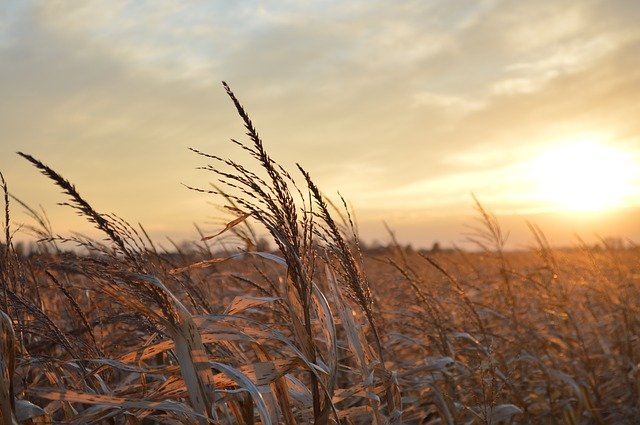As our climate changes, there will be big impacts on crop production. Understanding what these changes will be, and how they affect crops can only help us to better prepare for the future and help to ensure food security. Research at the University of Reading aims to understand how climate variability and change affects crops in order to identify adaptation options for agriculture.
Research at Reading has been involved in work which has developed a new global crop model, and the outcomes from this have enabled the provision of scientific advice to the UK Department for Energy and Climate Change (DECC) on the effects of different greenhouse gas mitigation policies on global crop production. Further outcomes of the research include a novel web-based tool to identify potential adaptation practices for crop production in the future, and this is now being used as a training aid for agricultural staff in developing countries.
The research produced a crop simulation model known as GLAM (General Large Area Model), which reproduces the impacts of climate variability and change on crop yield, and includes the effects of high temperature extremes. This work directly fed into the AVOID research programme of DECC, which examines the potential impacts that policy could have on global and regional climate.
As an alternative approach to informing agricultural adaptation to climate change, the knowledge and datasets from GLAM were also used to develop a tool to identify analogue climates. This work was carried out in collaboration with international non-governmental partners as part of the Climate Change, Agriculture and Food Security programme of the Consultative Group on International Agricultural Research (CGIAR). The climate analogue tool identifies locations today that have a climate similar to a particular location’s future projected climate, and these locations represent a source of potential adaptation practices for crop production.
Impact
The crop simulation model, which was developed to predict the impacts of climate variability and change on crops, has been used to provide advice to the UK Government on avoiding dangerous climate change brought on by greenhouse gas emissions. The implications for agriculture of a range of policy decisions on greenhouse gas emissions were made available to DECC through the outputs of the AVOID project, as a direct result of this research. Simulating crop impacts under various mitigation climate scenarios provided information on the potential efficacy of mitigation in reducing the negative impacts of climate change on crop productivity.
The impact of GLAM crop model simulations can also be demonstrated by their incorporation into evidence on the potential impacts of mitigated and unmitigated climate change that was compiled in information which was distributed to delegates at the UN 16th Conference of the Parties (COP-16) at Cancun, Mexico.
The climate analogue tool, developed as part of this research, identifies locations globally that have present climates which are similar to the future projected climate of a user-specified location. Agriculture practiced at these locations provides potential adaptation options for the user-specified location in the future. This resource is being promoted and distributed by the Climate Change, Agriculture and Food Security programme of the Consultative Group on International Agricultural Research (CGIAR).
CCAFS are now using this tool to train relevant personnel in the developing world, where climate change is expected to have a larger impact on agriculture, in order to aid agricultural adaptation to climate change in these places. Specifically, it is being used to inform adaptation to future climate via the CCAFS Farms of the Future project which to date has been active in Costa Rica, Ethiopa, Nepal and Tanzania.
Funding
The crop model described was initially developed with seed-funding from the University of Reading. Further development was supported by a NERC consortium grant looking at ‘The global impacts of climate change, a multi-sectoral analysis’. The consortium was led from Reading, and the work on crops and climate change all took place at the University of Reading.
Research led by Professor Tim Wheeler
First published: June 2015
Download the full case study

